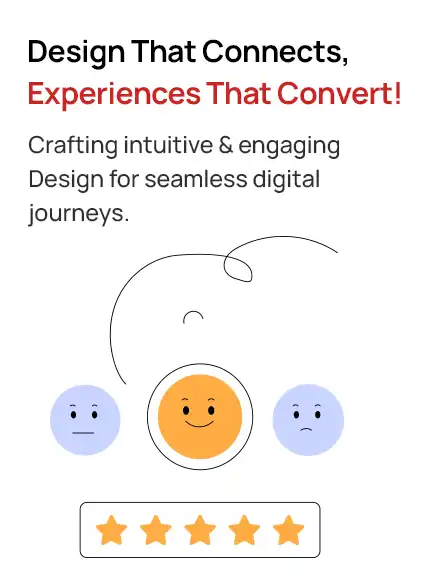
How to Redesign a Website Without Losing SEO
November 7, 2025
How to Hire a Website Redesign Specialist
November 14, 2025
How to Redesign a Website Without Losing SEO
November 7, 2025
How to Hire a Website Redesign Specialist
November 14, 2025Branding for Hospitality Industry
November 11, 2025
- 12 min to Read
Introduction
In the hospitality industry, the true measure of success is not just the number of guests you attract—it’s how many of them return, recommend, and remember you.
Every hotel, restaurant, or resort offers accommodation, food, or service, but what truly sets one apart is its brand.
A strong hospitality branding strategy doesn’t just create a name; it creates a feeling—one that guests associate with comfort, trust, and a sense of belonging. It’s the emotional connection that keeps travelers choosing your property over others, even when new options appear.
From boutique hotels and fine-dining restaurants to global chains and eco-resorts, branding for hospitality is what transforms a business from simply offering services to offering experiences.
This article explores how branding shapes guest perception, what elements make hospitality brands stand out, and why working with a hospitality branding firm can help you create a memorable and trusted brand identity.
What Is Hospitality Branding?
Hospitality branding is the process of defining how a hotel, resort, or restaurant is perceived by its guests. It’s the strategic combination of design, messaging, values, and guest experience that collectively form the brand’s personality.
Unlike other industries, hospitality relies heavily on emotion and experience. Guests don’t buy a product—they invest in how they feel during their stay or visit. Every element—logo, tone of voice, website design, staff behavior, even the scent in the lobby—contributes to that feeling.
At its core, hospitality branding answers questions like:
- What do we stand for as a brand?
- What kind of experience do we promise?
- How do we want guests to describe us after they leave?
When done effectively, branding builds long-term guest loyalty and becomes your most valuable marketing tool.
Why Branding Matters in the Hospitality Industry
Branding in the hospitality sector goes far beyond marketing visuals. It impacts every stage of the guest journey—from discovery and booking to stay and post-experience reviews. Here’s why it matters:
1. Creates Recognition and Credibility
Guests tend to choose familiar names they trust. A strong brand identity ensures recognition—whether someone sees your logo online or hears your name in conversation. Recognition leads to credibility, and credibility leads to bookings.
2. Builds Emotional Connection
Hospitality thrives on emotion. Guests may forget details, but they always remember how you made them feel. When your branding consistently evokes positive emotions—comfort, excitement, relaxation—it turns first-time visitors into repeat guests.
3. Differentiates You from Competitors
Competition is intense in the hospitality sector. With so many similar options, branding helps your business stand out. It defines your personality and gives potential guests a clear reason to choose you over others.
4. Encourages Loyalty and Referrals
Guests who identify emotionally with your brand are more likely to return and refer others. A strong hospitality brand builds loyalty through connection, trust, and memorable experiences.
5. Attracts the Right Audience
Branding also acts as a filter—it attracts the kind of guests you want. For example, a boutique hotel with minimalist design and calm aesthetics will attract travelers seeking peace, while a lively beach resort appeals to adventure seekers.
Core Elements of Effective Hospitality Branding
To build a memorable hospitality brand, consistency and authenticity are key. Here are the essential elements that define an effective brand in this industry:
1. Brand Story
Your brand story explains who you are and why you exist. It could be inspired by your location, cultural heritage, or founder’s vision. Guests today value authenticity—they want to know the story behind the experience. A good story gives depth to your brand and creates an emotional bridge between you and your audience.
2. Visual Identity
Your logo, typography, color palette, and imagery form your visual identity. Every visual element should reflect your brand’s tone and promise.
For instance:
- A luxury hotel might use gold and black for elegance.
- A family-friendly resort might prefer bright, playful colors.
- A wellness retreat might use soft, earthy tones.
Consistency across all visual materials—website, social media, menus, signage—reinforces your brand recognition.
3. Tone and Voice
How your brand communicates matters as much as what it says. Whether your tone is formal, friendly, or playful, it should be consistent in every interaction—social media posts, emails, or website copy.
4. Guest Experience
Your brand promise should align with every part of the guest experience. From booking to checkout, every interaction should reflect the same values and atmosphere that your brand stands for.
If your brand emphasizes “personal care,” guests should feel it in the smallest details—welcome gestures, staff friendliness, or follow-up messages.
5. Digital Presence
In today’s world, guests experience your brand online before they visit in person. Your website, social media, and online reviews must reflect your brand identity clearly. A seamless digital experience reassures guests that the same level of professionalism and warmth will continue offline.
Steps to Build a Strong Hospitality Brand
Whether you’re launching a new property or refreshing an existing one, here’s a clear roadmap to develop a brand that stands out and connects emotionally.
1. Define Your Brand Personality
Identify the core values and emotions you want to convey. Is your brand calm and luxurious, warm and welcoming, or adventurous and bold? This personality will guide every design and communication decision that follows.
2. Understand Your Audience
Knowing your ideal guests is essential. What motivates them to choose a place? What experiences are they seeking—comfort, convenience, culture, or escape? Tailoring your brand around your audience ensures relevance and stronger engagement.
3. Develop a Unique Brand Identity
Work with design experts to craft a logo, color scheme, and typography that visually express your personality. This should be memorable and easily recognizable across all platforms.
4. Craft a Consistent Guest Experience
Make sure your brand’s essence is present in every interaction—staff behavior, website layout, room décor, or social media tone. Consistency builds trust and makes your brand reliable in guests’ minds.
5. Partner with a Branding Agency Specialized in Hospitality
A branding agency specialized in hospitality understands the nuances of guest psychology, service design, and experience branding.
They don’t just design logos—they help shape emotions and perceptions through strategy and storytelling. Working with such experts ensures your brand connects authentically and performs consistently across touchpoints.
Why Work with a Hospitality Branding Firm
Building a hospitality brand requires specialized knowledge of both business strategy and emotional design. That’s where a hospitality branding firm comes in.
Here’s a comparison to show why it often makes sense to work with professionals:
| Aspect | Doing It In-House | Working with a Hospitality Branding Firm |
|---|---|---|
| Expertise | Limited creative or strategic scope | Deep understanding of hospitality trends and guest psychology |
| Consistency | Hard to maintain across channels | Ensures a unified brand experience everywhere |
| Time Efficiency | Trial and error process | Proven systems and frameworks for faster results |
| Market Insight | Limited competitor analysis | Data-driven insights into guest expectations |
| Scalability | Difficult to manage during growth | Builds flexible brand systems for expansion |
A hospitality branding firm combines creativity with strategy to help your business tell its story effectively and connect with guests on an emotional level.
Common Branding Mistakes in the Hospitality Sector
Building a hospitality brand requires specialized knowledge of both business strategy and emotional design. That’s where a hospitality branding firm comes in.
Inconsistent Branding: Using different tones, designs, or messages across platforms confuses guests.
Ignoring Employee Role: Your staff are your strongest brand ambassadors. Train them to embody your brand values.
Neglecting Digital Image: A poor website or inactive social media page can weaken trust instantly.
Copying Competitors: Authenticity is what makes your brand memorable; imitation only makes you blend in.
Ignoring Guest Feedback: Reviews are gold for hospitality brands. Listening and adapting improves both service and brand reputation.
The Future of Hospitality Branding
As travelers evolve, so do their expectations. The future of hospitality branding will be defined by personalization, sustainability, and storytelling.
- Personalization: Brands that remember guest preferences and tailor experiences will lead.
- Sustainability: Eco-conscious operations and transparent communication about your environmental impact will strengthen trust.
- Authentic Storytelling: Guests crave genuine experiences. Brands that highlight culture, heritage, or community involvement will stand out.
Conclusion: Turning Stays into Stories
In the hospitality industry, a strong brand isn’t just about aesthetics—it’s about emotion, consistency, and trust. Guests might forget your rates or décor, but they’ll always remember how your brand made them feel.
Whether you’re building a boutique retreat or managing a growing hotel chain, your brand is your promise. It’s the silent ambassador that represents your values in every guest interaction.
At Upclues, we understand that hospitality branding is about creating meaningful experiences. As a branding agency specialized in hospitality, we help hotels, restaurants, and travel brands craft powerful stories and consistent identities that connect with guests on a deeper level.
Our goal is simple—to help you build a brand that guests not only recognize but cherish. Because in hospitality, every stay should tell a story worth remembering.
FAQs
1. What is the importance of branding for hospitality businesses?
Branding defines how guests perceive your business. It builds trust, sets expectations, and ensures a consistent guest experience that drives loyalty and repeat visits.
2. How can I create a strong hospitality brand?
Start with a clear brand story, strong visual identity, consistent guest experience, and digital presence. Working with a hospitality branding firm can accelerate and refine the process.
3. Why should I hire a branding agency specialized in hospitality?
Such agencies understand guest psychology, industry competition, and experience design—ensuring your brand feels authentic, professional, and emotionally engaging.
4. What mistakes should hospitality brands avoid?
Avoid inconsistent visuals, neglecting digital branding, or copying competitors. Always stay authentic and guest-focused.
5. How can branding increase hotel bookings?
A recognizable and trustworthy brand makes it easier for guests to choose your property. It boosts credibility, creates emotional connection, and enhances overall marketing effectiveness.
Ready to refresh your brand?
Contact Upclues today and start your rebranding journey.





